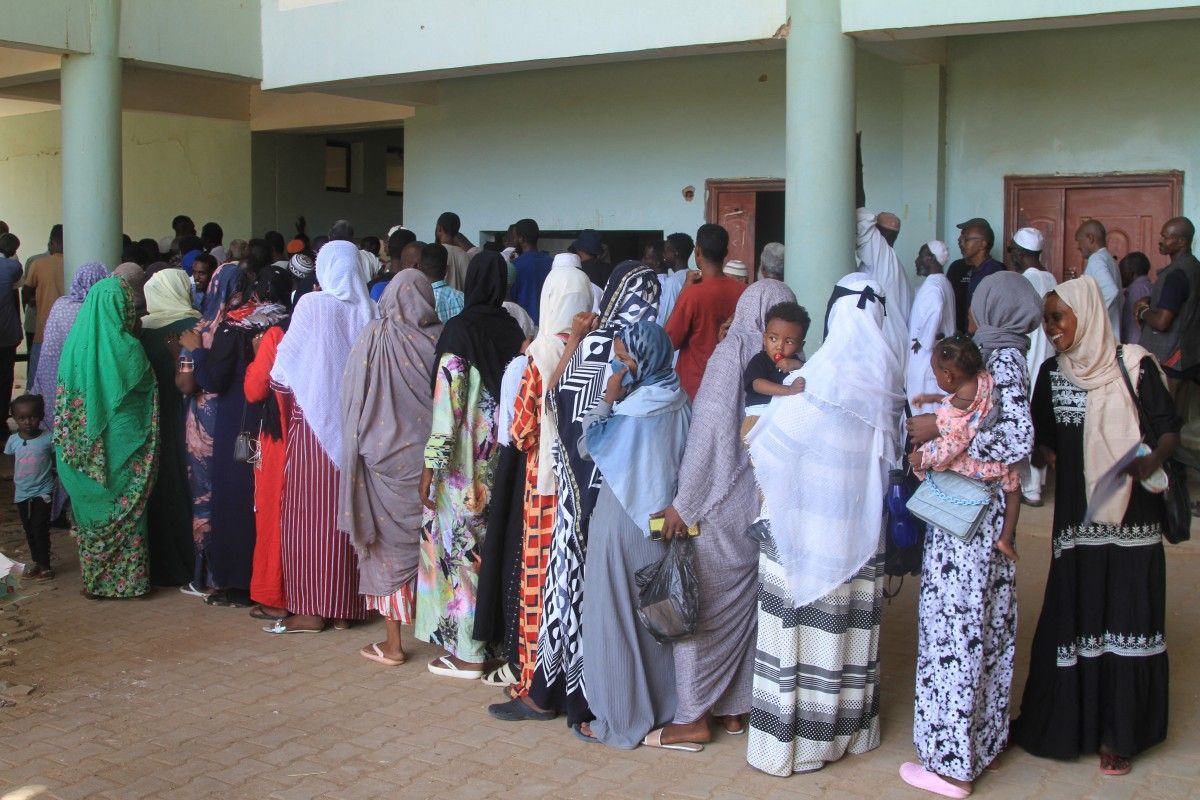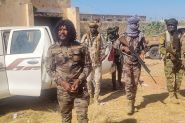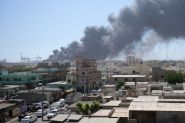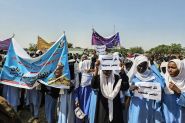- Home
- Middle East
- US, Saudi, UAE, Egypt Call for Sudan Truce, Transition to Civilian Rule

©EBRAHIM HAMID / AFP
The United States, Saudi Arabia, the United Arab Emirates and Egypt called on Friday for a three-month humanitarian truce in Sudan, to be followed by a permanent ceasefire and a nine-month transition towards civilian rule.
In a joint statement issued by the US State Department, the four countries said the transition should "meet the aspirations of the Sudanese people towards smoothly establishing an independent, civilian-led government with broad-based legitimacy and accountability".
Since April 2023, Sudan has been torn apart by war between its army -- which maintains control over most state institutions -- and the paramilitary Rapid Support Forces (RSF).
The conflict has killed tens of thousands, displaced millions and created what the United Nations describes as one of the world's worst humanitarian crises.
"Sudan's future governance is for the Sudanese people to decide through an inclusive and transparent transition process, not controlled by any warring party," Friday's statement said.
The statement appeared to have been released in lieu of a meeting involving the foreign ministers of the four countries that had originally been scheduled for July in Washington but was postponed due to disagreements between Egypt and the UAE.
Egypt, a key ally of Sudan's regular army, has consistently called for the protection of state institutions.
The UAE, meanwhile, has been widely accused -- including in UN reports -- of supplying arms to the RSF, a claim it denies.
Diplomatic sources told AFP that Cairo objected to earlier language barring both the army and the RSF from taking part in the transition.
The final language appears to reflect a compromise, avoiding specific mention of either side while insisting Sudan's next government be decided by the people.
It also explicitly excludes the involvement of "violent extremist groups part of or evidently linked to the Muslim Brotherhood" in the transition process.
The United States on Friday imposed sanctions on Sudan's army-aligned finance minister, Gebreil Ibrahim, a senior Islamist figure, and on the Baraa Ibn-Malik Brigade, an Islamist militia that has been fighting alongside the army.
Islamists dominated Sudanese politics for three decades under ousted president Omar al-Bashir and have seen a resurgence during the war, aligning with the army.
"These sanctions aim to limit Islamist influence within Sudan and curtail Iran's regional activities, which have contributed to regional destabilization, conflict, and civilian suffering," the US Treasury Department said in a statement.
Despite international efforts to push for peace, it remains unclear whether the warring factions are willing to engage.
In June, UN Secretary-General Antonio Guterres called for a one-week ceasefire in North Darfur's besieged capital of El-Fasher. The army agreed to the pause, but the RSF rejected it.
Both sides have repeatedly vowed to continue fighting until securing outright military victory.
The army currently controls Sudan's east, north and center, while the RSF holds parts of the south and nearly all of the western Darfur region -- where it recently declared a parallel government, fuelling fears of the country's fragmentation.
Friday's joint statement, however, maintained "there is no viable military solution to the conflict, and the status quo creates unacceptable suffering and risks to peace and security".
With AFP
Read more



Comments